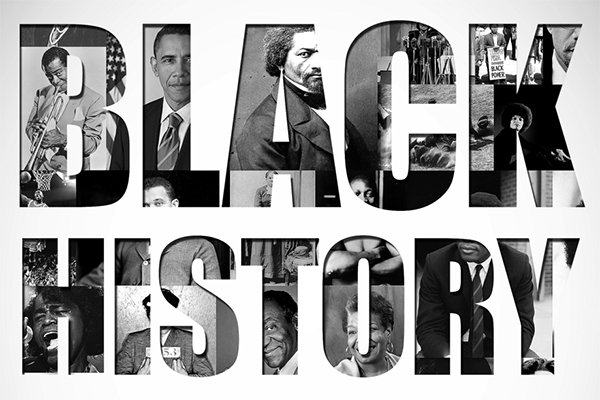This editorial is in response to the Feb. 10 Knight Vision “Lack of Black History month celebration.”
“Awareness is the greatest agent for change,” Eckhart Tolle. Tolle’s sentiments seem like an appropriate way to begin my response to The Gannon Knight’s observation of the absence of activities related to Black History Month here at Gannon. I would like to thank The Knight’s editor-in-chief and staff for raising this question, raising awareness and having the courage to invite a dialogue about this historical celebration. Planting seeds of awareness like these can stir curiosity evoke self-reflection and so much more.
When I read the questions you raised and the observations you made regarding the absence of celebrating Black History Month this year at Gannon, I had an immediate internal response. I felt sad, disappointed, frustrated and ashamed. I was sad and disappointed that the importance of this month was not emphasized. I was frustrated because even in this century, we still have to be intentional about acknowledging the unique qualities and contributions of others rather than it being a natural, unprovoked response. I felt ashamed that my observations surfaced only as thoughts rather than asking the question aloud to the Gannon community, especially because I am an African-American woman.
I think it is only fitting to provide some background information on Black History Month for those who may not be aware. The concept of Black History Month was established by an African-American scholar, Carter G. Woodson, Ph.D. Despite his parents being slaves, he was able to obtain his degree from Harvard University in 1912. Due to the absence, misrepresentation, omission and ignoring of African-American contributions to our American history, in 1926, Woodson organized an annual week that celebrated our accomplishments.
This week-long celebration was held during the second week of February to coincide with President Abraham Lincoln’s and Frederick Douglas’ birthdays. I might even be so bold to suggest that Woodson’s efforts were a precursor to the current movement and declaration that Black Lives Matter. He knew that our roles in society mattered and he wanted others to know just how much we contributed to American society.
I am very aware that my reflections on Black History Month and my desire to keep its flame alive may be met with disagreement and opposition. I am aware that there are voices within our society that have expressed fatigue with hearing about setting aside time to honor the achievements of African-Americans; who wonder why there is a focus on differences; who say, “I don’t see color;” who do not understand the meaning of Black History Month; who feel Black History Month further marginalizes African-Americans; and who may say my advocacy for Black History Month is a form of prejudice.
I realize there are individuals who may ask “If they can have a month why shouldn’t we?” That’s such a fair question and my answer is that you should and you can. However, I would add that the reason Black History Month was established in the first place is because there are groups of individuals within our society that are reminded every day of their achievements and are validated in some manner whether it’s in the media or the environment.
There is absolutely nothing wrong with that because every person deserves to be validated and affirmed. However, just as there are groups of people who are surrounded with messages of validation, there are individuals who do not have an opportunity to receive that same consistent validation. Wanting to celebrate one’s history and accomplishments is not meant to negate or ignore other groups and their accomplishments. Black History Month is simply one way of acknowledging that the lives of one of several groups in the United States who have been historically marginalized matter.
I realize that any conversation that has to do with race within our society is extremely sensitive and begs us to tread lightly. Given the painful, neglected, unaddressed generational and historical wounds within our country regarding race, it is no wonder feelings of discomfort, pain, anger and hurt are aroused. But I believe when we acknowledge the unique qualities in people we actually bring about unity, healing and resolution. When someone feels validated, it can open the door for exchange, conversations and change. Ignoring and denying these conversations only puts salt in an already seething wound.
The current generation is faced with the unsettling reminder that while we have made great gains in race relations and sensitivity, unaddressed wounds from the generations before us are resurfacing (via the recent deaths and shootings of African-American men and women and the Black Lives Matter movement). Making it no surprise that in 2016 we are still dealing with the unsettled debris from the Civil Rights Movement of 1954-1968 where people of various ethnicities and cultures offered courageous support, advocacy, help and their lives to counter racist laws and actions against African-Americans.
So The Knight posed the question, “What are some ways Gannon could celebrate Black History Month?” I wish I knew. I guess I could offer some ideas but I feel like they would be more prescriptive and rigid. Perhaps another question to add is, “What are some ways Gannon can celebrate diversity and promote inclusion 365 days of the year?” I think to not acknowledge or celebrate Black History Month can only perpetuate the already invisible status that at times I, and perhaps other African-American individuals on campus, may feel.
I do not believe that the absence of campus-wide activities or events for Black History Month was intentional. Gannon does appear to make some genuine and intentional efforts toward inclusion. There does seem to be recognition that Gannon is a sum of its parts and that without nurturing the parts, the whole suffers. But as with anything, there is always room for more efforts toward building a sense of community.
I acknowledge that diversity and inclusion can be a difficult dance and balance on both a micro and macro level. However whenever there is a population that is disproportionate from the majority of the population, I’m not sure we as a campus and community can afford to miss opportunities to celebrate and acknowledge the uniqueness of various groups. This acknowledgement can come in various forms including the establishment of an Office of Multicultural Affairs on campus.
I guess I would invite us as a community to move toward celebrating Black History Month in a more authentic and unscripted manner. I hope moving forward there can be a mix of honoring the former e.g., Dr. Martin Luther King Jr., while acknowledging the new Dr. Ameena Matthews. I hope that there will be a genuine interest to create activities honoring African-American contributions in a way that creates meaning and connection with each other.
I think in order to do that, we need to begin with ourselves and explore how we each contribute to change and awareness or how we block and delay it. Part of this process may include daily self-reflection and simple acknowledgements that allow us to examine our own biases. I think the work begins with ourselves first and requires self-reflection not when it’s required e.g., a training or an assignment or when there’s a crisis but part of a daily practice. Doing this may allow us to honor our own lenses while seeing things from another’s perspective and putting on their lenses.
I encourage us to continue building and expanding on the efforts that have already been made on campus to celebrate diversity and inclusion. I commend the efforts of those who put forth an effort every day, month and year to practice building community in this way through various activities like Diversity Dialogues, shout out to Center for Social Concerns for their constant efforts toward diversity and inclusion. I also recognize that there are individuals who may not host a program or activity but honor diversity and inclusion through their daily interactions, behind the scenes.
To The Knight staff, thank you for having the courage to share your observations aloud. Thank you for acknowledging that there shouldn’t just be one month dedicated to the celebration of Black History. Most of all, thank you for noticing and making the invisible visible.
FELIESHA SHELTON-WHEELER, PH.D.
staff therapist, health & counseling services
[email protected]




